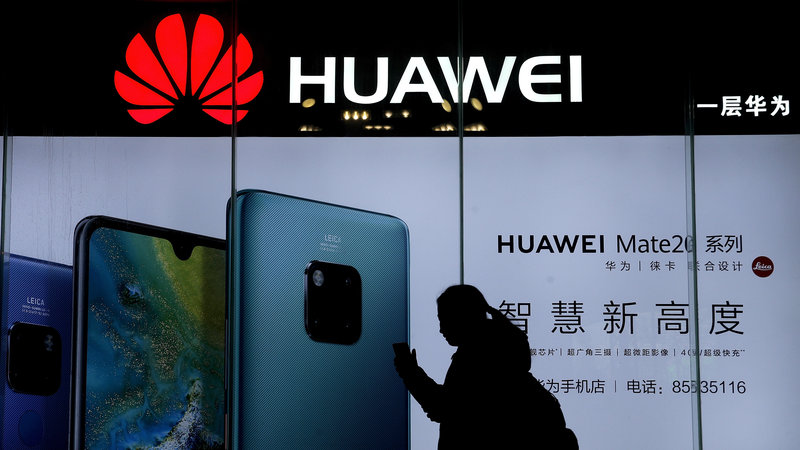Fresh investigations into Chinese telecom companies operating in the US
I am not telling you anything you don’t already know about the issues that the US has against China and China’s main tech companies: unbalanced trade deficit, China’s “colonization” of poorly-governed African countries, alleged state-sponsored theft of American intellectual properties, alleged flagrant stealing by Chinese companies (like Huawei) of technologies from US companies, alleged lack of […]

I am not telling you anything you don’t already know about the issues that the US has against China and China’s main tech companies: unbalanced trade deficit, China’s “colonization” of poorly-governed African countries, alleged state-sponsored theft of American intellectual properties, alleged flagrant stealing by Chinese companies (like Huawei) of technologies from US companies, alleged lack of transparency of the Chinese government in trade dealings, and alleged Chinese companies’ breaking of sanctions imposed by the US on certain countries.
As if there is no end to the Sino-American saga, just last week Thursday, 9 May 2019, a measure voted on in the US to block the telecommunication company, China Mobile, from US networks was passed in a 5-0 vote. Furthermore, the commissioner of the US Federal Communications Commission (FCC), Brendan Carr, on the same day, called for the investigation of two other Chinese telecommunication companies, China Unicorn and China Telecom, which are currently operating within the US networks.
Carr is claiming that “the security threats have changed since these companies were allowed interconnection rights (in the US) nearly 20 years ago.” He also said this: “The evidence I’ve seen in this case calls those existing authorizations into question. For instance, the decision today cites reports that China Telecom has been hijacking US traffic and redirecting it through China.” In short, Carr would like to see the FCC revoke the authorization of China Unicorn and China Telecom to operate within the US.
The FCC Chief’s contention is that “security threats have evolved over the many years since those Chinese companies were granted interconnection rights to US networks in the early 2000s. Much if not all of the reasoning behind today’s decision appears to apply with equal or greater force to those legacy authorizations. Let’s ensure that our decisions from decades past don’t inadvertently endanger American interests.” The Chinese government has consistently denied all and any allegations levied against it by the US, as has Huawei. However, as Computing Media (UK) recently reported, “Huawei has found itself on the receiving end of an FBI sting already this year, when a hidden microphone at a CES (Consumer Electronics Show) event recorded staff admitting to exporting a piece of ‘diamond glass’ technology to China, violating the terms of an agreement that it should stay on US soil.”
Recently, the Verge Technology News and Media Company wanted opinions on whether or not the US is right in targeting Chinese equipment makers like Huawei, or whether the company is being unfairly vilified. The Verge convened “experts,” from prominent China-watchers to US Senator Marco Rubio, to give their views. Of the seven respondents, all except one expressed some kind of justification for America’s actions, and the only person that criticized the US is a Chinese national resident in the UK. This is what Senator Marco Rubio told The Verge: “Huawei is a Chinese state-directed telecom company with a singular goal: undermine foreign competition by stealing trade secrets and intellectual property, and through artificially low prices backed by the Chinese government.” Senator Rubio also reportedly said this: “The Communist Chinese government poses the greatest, long-term threat to America’s national and economic security, and the US must be vigilant in preventing Chinese state-directed telecoms companies, like Huawei and ZTE, from undermining and endangering America’s 5G networks.” “We must also recognize that the continued threat posed by the Chinese government’s assault on US intellectual property, US businesses, and our government networks and information has the full backing of the Chinese Communist Party.”
Meanwhile, Meng Wanzhou, Huawei’s Financial Chief and daughter of the company’s founder, is still in detention in Canada, since she was arrested in December 2018 for charges related to violating Iran sanctions. A few days ago, she reportedly appeared at a Vancouver, Canada courthouse, to set a time table for her upcoming extradition hearing. The US law makers want Wanzhou extradited from Canada to the US to face the charges. According to the UK Guardian newspaper, 10 May 2019, after Wanzhou’s arrest, China reportedly detained the former Canadian diplomat Michael Kovrig and the businessman Michael Spavor in what was seen by some as retaliation, if not an expression of the apparent importance of Huawei to the Chinese government. Both Huawei and Meng have denied all the charges.
The Guardian article observes that “relations between Ottawa and Beijing were thrown into crisis by the arrest of Meng, the chief financial officer of telecom company Huawei and possible heir to her father’s company.” “Washington wants to put Meng on trial on fraud charges for allegedly violating Iran sanctions and lying about it to US banks. Two other Canadians – Fen Wei and Robert Schellenberg – have been convicted in China of drug trafficking and sentenced to death. Furthermore, China reportedly recently blocked Canadian shipments of canola and pork worth billions of dollars. Meanwhile, Canada is rallying the support of a few allies – Britain, France, Germany and the US, as well as the EU, NATO, and the G7 countries.
As you can see, China and its companies continue to face serious trust issues in the West.
